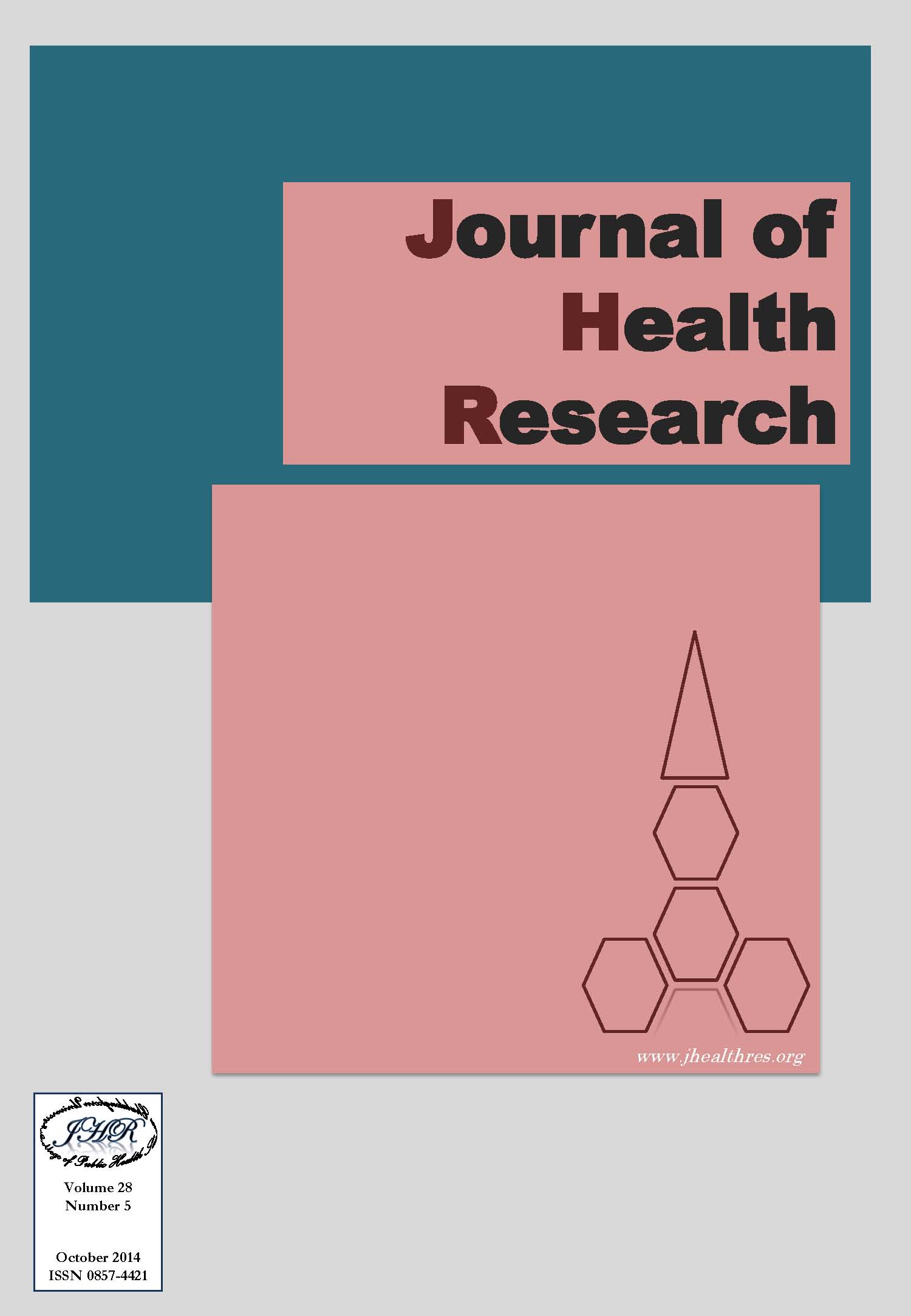Effectiveness and Economic Outcomes of Generic and Brand-Name Imipenem/Cilastatin in Thai Patients with Hospital-Acquired Pneumonia
Keywords:
Effectiveness, Economic consequences, Generic drug, Imipenem/cilastatin, Hospital-acquired pneumoniaAbstract
Generic imipenem/cilastatin (Yungjin®) has been available at Rajavithi Hospital since 2008. No study has investigated effectiveness and economic consequences of generic and branded imipenem/cilastatin (Tienam®) in hospital-acquired pneumonia (HAP). The objective of this study was to compare clinical effectiveness and economic consequences between both of drugs. Medical records of adult patients were diagnosed HAP and received imipenem/cilastatin at least 48 hours between January 2008 and April 2012 including imipenem/cilastatin treatment costs (direct medical costs) were reviewed. The economic perspective was hospital perspective. The effectiveness and economic consequences of 154 patients who received each drug was compared using less than 10% of favorable outcome difference. The study revealed that among 308 patients, the overall favorable outcomes in the generic and branded imipenem/cilastatin were 24% and 37.6%, respectively (OR 0.5, 95% CI 0.3 to 0.9, estimated absolute difference -13.6%, 95% CI -23.8% to -3.4%, estimated number needed to treat (NNT) = 7, p = 0.010). The adverse drug reactions in both groups were not significantly different. Length of stay (LOS) in the generic and branded drug were 50.1 and 81.0 days respectively (p = 0.020). The total treatment costs and cost per case using generic drug treatment were roughly 7.52 million baht and 0.20 million baht, respectively. For branded drug total treatment costs and cost per case were roughly 13.60 million baht and 0.23 million baht, respectively. An incremental cost-effectiveness ratio (ICER) was roughly 0.29 million baht per patient. Univariate sensitivity analysis indicated that ICER was sensitive to changes in drug costs and consumer price index. In conclusion, these results suggest that generic imipenem/cilastatin (Yungjin®) could not prove for equivalent effectiveness to branded imipenem/cilastatin (Tienam®) in HAP, but associated with lower treatment costs.







